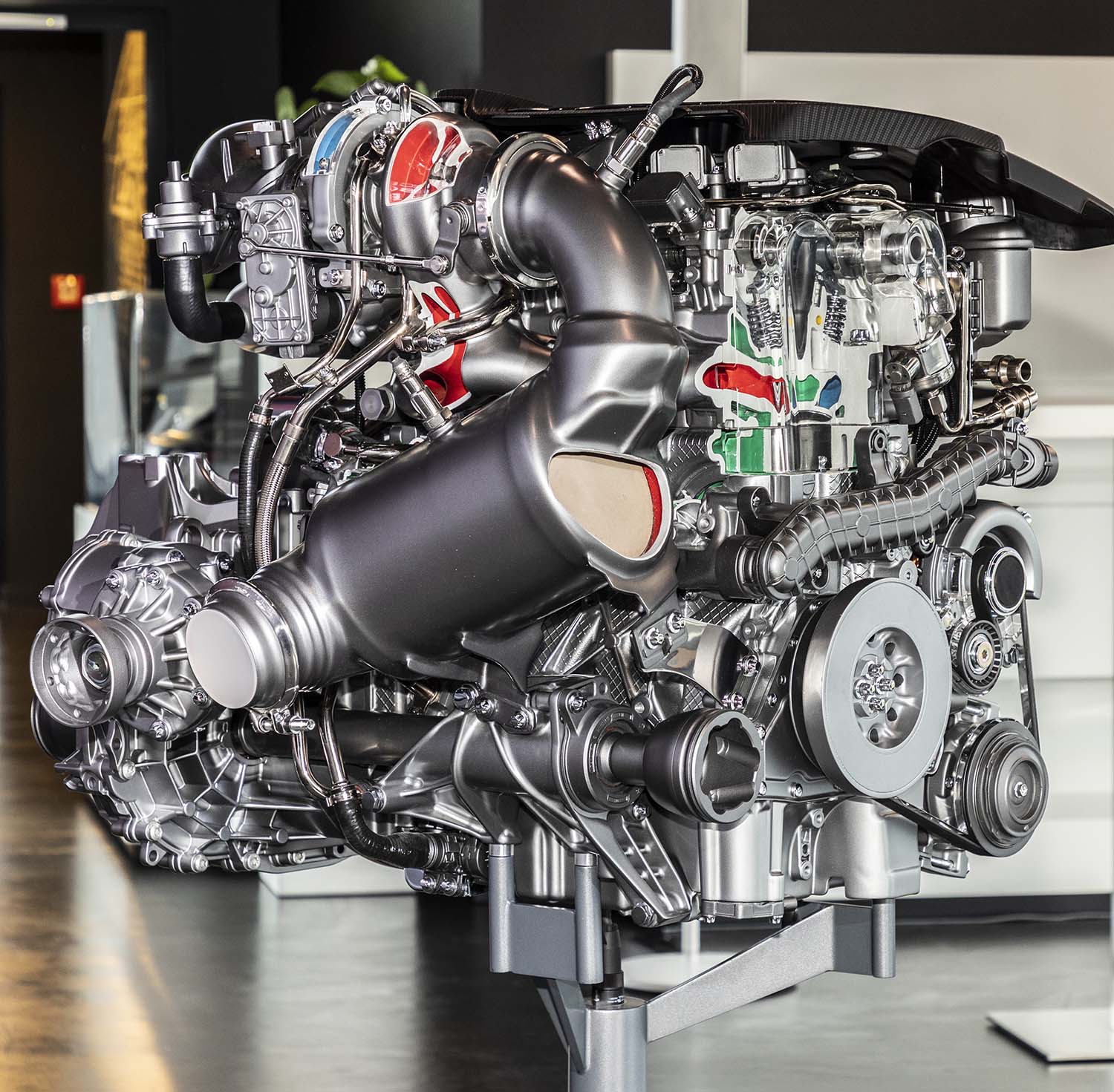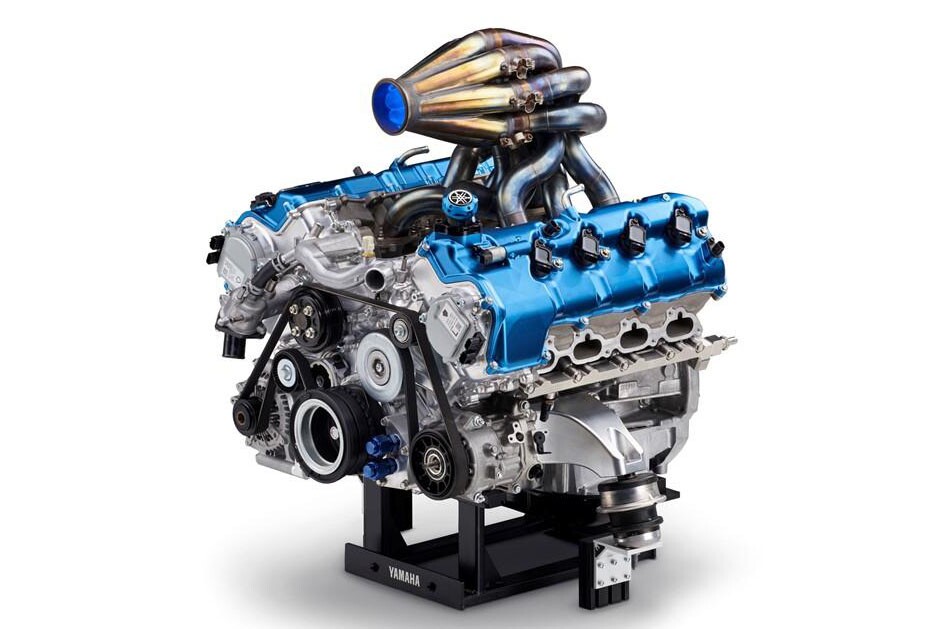Explore Engines for Africa at Our Thorough Car Parts Store
Explore Engines for Africa at Our Thorough Car Parts Store
Blog Article
The Impact of Innovative Engine Technologies on Energy Efficiency and Environmental Sustainability
In the world of transport and industrial equipment, the continual quest for improved energy efficiency and decreased environmental impact has actually led to significant advancements in engine modern technologies. From the steady change in the direction of electric and hybrid systems to the assimilation of turbocharging for boosted effectiveness, the landscape of engines is advancing swiftly.
Evolution of Engine Technologies
The progression of engine modern technologies over the years has been noted by consistent development and improvement in pursuit of boosted performance and performance. From the very early days of inner combustion engines to the innovative crossbreed and electric powertrains these days, the advancement of engine innovations has been driven by a ruthless pursuit for enhanced fuel efficiency and lowered discharges.
One substantial landmark in this advancement was the growth of turbocharging and direct shot systems, which dramatically boosted engine power output while boosting fuel effectiveness. These innovations enabled smaller, much more light-weight engines that could deliver the efficiency of larger ones without jeopardizing on performance.
In addition, innovations in products science have resulted in the extensive fostering of lightweight products such as aluminum and carbon fiber in engine building. This has not only reduced total vehicle weight however has additionally enhanced engine efficiency by lessening power losses related to inertia and rubbing.
Benefits of Electric and Hybrid Systems
With the growing concentrate on sustainability and energy efficiency, what advantages do electric and hybrid systems offer in the world of engine innovations? Electric and hybrid systems present many benefits that contribute to a more energy-efficient and lasting future. One of the primary benefits is the considerable decrease in greenhouse gas discharges compared to traditional inner burning engines. Electric vehicles generate zero tailpipe discharges, causing improved air high quality and lowered ecological influence. In addition, hybrid and electric systems are more energy-efficient, transforming a higher percentage of kept power right into propulsion compared to conventional engines. This effectiveness results in reduced power usage and operating expense over the vehicle's lifetime. Electric automobiles supply regenerative braking systems that record and store energy commonly shed throughout braking, better boosting power efficiency (engines for africa). Crossbreed systems integrate the benefits of electric propulsion with the versatility of a combustion engine, offering prolonged driving varieties and decreasing range anxiety for consumers transitioning to electrical cars. In general, hybrid and electric systems play an important duty beforehand power performance and ecological sustainability in the transportation sector.
Turbocharging for Improved Performance
Cutting-edge engine innovations like electric and hybrid systems have led the means for improvements in car efficiency, with turbocharging emerging as a vital method for boosting overall performance and sustainability. Turbocharging works by utilizing a wind turbine to force more air into the burning chamber, enabling for better gas combustion and boosted power output without a significant increase in engine dimension. This procedure, referred to as forced induction, enables smaller, more fuel-efficient engines to generate power degrees comparable to larger ones. By making the most of the performance of the combustion process, turbocharged engines can accomplish improved fuel economic situation and reduced discharges, contributing to ecological sustainability. In addition, turbocharging enhances engine responsiveness, supplying chauffeurs with a much more dynamic driving experience. The extensive adoption of turbocharged engines in both fuel and diesel cars shows their performance in balancing efficiency, efficiency, and ecological impact. As vehicle producers remain to improve turbocharging technology, its function in advertising energy effectiveness and sustainability in the transportation field is expected to expand additionally.
Using Alternate Gas
Utilizing alternative gas offers an encouraging avenue for lowering carbon exhausts and expanding the power sources made use of in transportation. As the world aims to fight climate change and lower reliance on fossil gas, alternate gas have actually acquired substantial attention for their prospective ecological and financial advantages.
Biofuels, such as ethanol and biodiesel, are originated from renewable sources like sugarcane, corn, and algae, offering a cleaner burning choice to typical fuel and diesel. These fuels can be combined with existing petroleum fuels or made use of in devoted engines, supplying a pathway to lower greenhouse gas exhausts and boost air high quality.
Additionally, hydrogen gas click this link cells have actually become an encouraging innovation for zero-emission transportation. engines for africa. By transforming hydrogen gas into electrical power to power electric motors, gas cell cars produce just water vapor as a byproduct, removing harmful tailpipe emissions entirely
Along with reducing carbon discharges, different gas can likewise improve energy safety by expanding the gas mix and lowering reliance on imported oil. Accepting different gas in transportation is an essential action in the direction of attaining an extra eco friendly and sustainable future.

Future leads and ecological advantages
The environmental advantages of alternate gas and their possibility for long-term sustainability are key factors to consider in the transition towards cleaner power sources. Alternate gas, such as biofuels, hydrogen, and power, offer significant ecological advantages contrasted to conventional fossil gas. These fuels create reduced degrees of greenhouse gas exhausts, decreasing air pollution and mitigating climate change influences. Additionally, alternative gas can assist expand power resources, enhancing power security and minimizing dependence on finite resources.
The future potential customers for alternative gas in the transport field are encouraging. Innovations in modern technology continue to boost the performance and affordability of alternate gas cars, making them extra available to customers. Federal governments around the globe are likewise carrying out policies to incentivize the fostering of alternate fuels, better driving their growth. As research study and growth efforts increase, the potential for even greener and more sustainable fuel choices boosts, leading the means for a cleaner and more eco-friendly transport sector. By embracing alternative fuels and innovative modern technologies, the path in the direction of a much more sustainable future comes to be progressively attainable.

Verdict
In conclusion, cutting-edge engine innovations have actually played a crucial function in boosting energy performance and promoting environmental sustainability. The advancement of engine technologies, adoption of electrical and i thought about this hybrid systems, utilization of turbocharging, and expedition of different fuels have all added to lowering discharges and enhancing efficiency.
In the realm of transportation and commercial machinery, the continual quest for boosted energy effectiveness and lowered environmental impact has led to significant advancements in engine technologies. Turbocharging works by making use of a turbine to force more air into the combustion chamber, enabling for much better fuel combustion and boosted power result without a substantial boost in engine size. By making the most of the performance of the burning procedure, turbocharged engines can accomplish better fuel economy and decreased find out here discharges, adding to environmental sustainability. Alternate fuels, such as biofuels, hydrogen, and electricity, offer significant ecological benefits contrasted to conventional fossil fuels. The advancement of engine modern technologies, fostering of electrical and hybrid systems, use of turbocharging, and expedition of different fuels have all added to reducing emissions and enhancing efficiency.
Report this page